What is Acupuncture? What will my acupuncturist do? How does acupuncture feel?
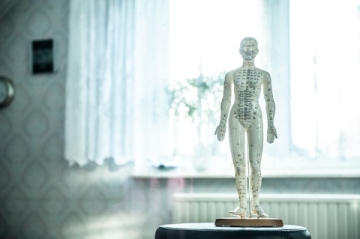
Acupuncture is an effective form of health care that has evolved into a complete and holistic medical system. Practitioners of acupuncture and Chinese medicine have used this noninvasive medical system to diagnose and help millions of people get well and stay healthy. Acupuncture practitioners insert sterilized, extremely fine, disposable needles just below the surface of the skin. This stimulates Qi, the body's cyclic energy flow. By balancing and redirecting Qi, an acupuncture practitioner encourages the body's natural capacity for self-healing. In turn, this improves the way the body functions.
During the initial exam, a full health history will be taken. Questions will be asked regarding symptoms, health and lifestyle. Your acupuncturist also may check pulses and your tongue and may conduct a physical exam. This information is then organized to create a complete, accurate and comprehensive diagnosis of where Qi has become blocked or imbalanced. After the interview process, you may receive an acupuncture treatment. A visit with Dr. Poon may last from 30 to 90 minutes.
The sensation caused by an acupuncture needle varies. Some people feel a little pain as the needles are inserted, but most people feel no pain at all. The needles are tiny, just a little larger than a cat's whisker or a human hair.
What is Qi and how does it travel? What can affect Qi?
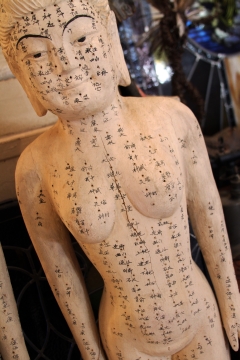
At the core of this ancient medicine is the philosophy that Qi, or the Life Energy, flows throughout the body. Qi helps to animate the body and protect it from illness, pain, and disease. A person's health is influenced by the quality, quantity, and balance of Qi. Qi circulates through different channels called meridians. There are 12 main meridian pathways throughout the body and nearly 500 acupuncture points located along these meridians. Each is connected to specific organs and glands. Modern science has actually shown that the body gives off slight electrical charges at these points. Meridian pathways transport life giving Qi to nourish and energize every cell, organ, gland, tissue and muscle. When Qi flows freely throughout the body, one enjoys good physical, mental, and emotional well-being. An obstruction of Qi anywhere in the body is like a dam, backing up the flow in one area and restricting it in others. This blockage can hinder the distribution of the nourishment that the body requires to function optimally.
Many things influence the quality, quantity, and balance of Qi. Physical and emotional trauma, stress, lack of exercise, overexertion, seasonal changes, diet, accidents or excessive activity can lead to a blockage or imbalance of Qi. Normally, when this imbalance occurs, the body naturally bounces back, returning to a balanced state of health and well-neing. When the disruption to Qi is prolonged or excessive, or if the body is in a weakened state, then illness, pain or disease can set in.
Why do they want to feel my pulses? Why do they want to look at my tongue?
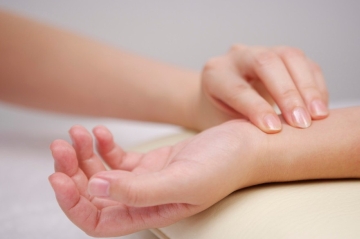
There are 12 pulse positions on each wrist that your acupuncturist will palpate. Each position corresponds to a specific meridian and organ. Your acupuncturist will be looking for 27 individual qualities that reflect overall health. If there are any problems, they may appear in the pulse.
The tongue is a map of the body. It reflects the general health of the organs and meridians. Your acupuncturist will look at the color, shape, cracks and coating on your tongue.
How many treatments will I need? What should I expect during my treatment?
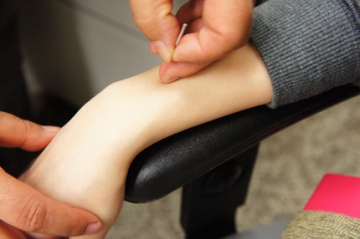
The number of treatments will vary from person to person. Some people experience immediate relief; other may take months or even years to achieve results. Chronic conditions usually take longer to resolve than acute ones. Treatment frequency depends on a variety of factors: your constitution, the severity and duration of the problem and the quality and quantity of your Qi. Some patients come for a "tune-up" several times a year to maintain an optimum level of health. Some patients feel better after one treatment while others need five or six treatments before they could feel a different.
Where the acupuncture needle has been inserted, you may experience a vague heaviness sensation. This is called the Qi sensation. Typically needles are inserted just below the skin and would retain for about 20-40 minutes at a time. Most of my patients would feel energized or may experience a deep sense of relaxation after each treatment.
How should I prepare before my appointment?
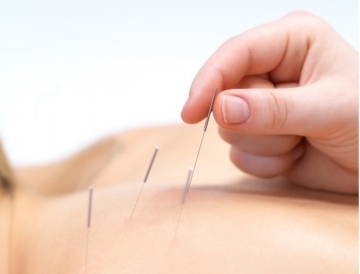 Come with any questions you have, we're here to help you.
Wear loose, comfortable clothing for easy access to acupuncture points. Don't eat large meals just before or after your visit. However, do make sure you have eaten a meal earlier in the day.
Don't engage in sexual activity immediately before your appointment. Refrain from overexertion, working out, drugs or alcohol for up to 6 hours after the visit.
Avoid stressful situations. Make time to relax, and he sure to get plenty of rest and water.
Between visits, take notes of any changes that may have occurred, such as the alleviation of pain, pain moving to other areas, or changes in the frequency and type of problems.
Come with any questions you have, we're here to help you.
Wear loose, comfortable clothing for easy access to acupuncture points. Don't eat large meals just before or after your visit. However, do make sure you have eaten a meal earlier in the day.
Don't engage in sexual activity immediately before your appointment. Refrain from overexertion, working out, drugs or alcohol for up to 6 hours after the visit.
Avoid stressful situations. Make time to relax, and he sure to get plenty of rest and water.
Between visits, take notes of any changes that may have occurred, such as the alleviation of pain, pain moving to other areas, or changes in the frequency and type of problems.
Can acupuncture be used as preventative medicine?
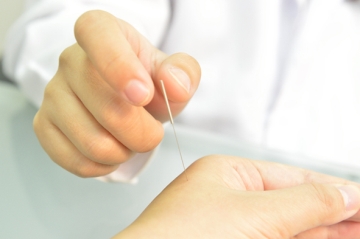
Yes. Research has now verified that acupuncture stimulates immune functioning, which can increase your resistance to bacterial and viral infection. Acupuncture increases overall energy and vitality, and it helps the body respond to injury and stress. Regular, monthly treatments can help you maintain good health and a sense of well-being.
What is Cupping? What is Gwa Sha? What is Tui Na? What is Moxibustion?
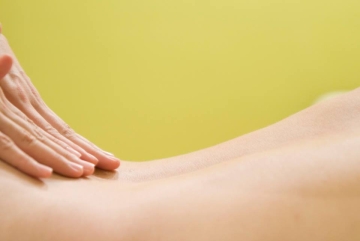
Cupping is a therapy designed to stimulate the flow of blood and Qi within the superficial muscle layers. It is used for sore muscles, tension, neck and back pain and the common cold. In this therapy, your acupuncturist will place small glass or plastic "cups" over specific areas on your body. A vacuum is created under the cup using heat or suction. They may be moved over an affected area or left in place. There would be slight redness left on your skin after the treatment but it will quickly dissipate.
Gwa Sha is another technique used to release muscle tension, tightness and constriction. A specialized tool is used to gently scrape or rub the skin over a problem area. Gwa Sha feels a bit like deep massage. This too may leave slight redness that will quickly dissipate.
Tui Na translates as "push grasp". This is a massage technique that moves Qi in various parts of the body. It is used to relieve muscle pain, tension, and to heal injuries.
Moxibustion is a treatment that uses an herb called mugwort. It may be burned on the handle of the needle, above the skin, on salt or on a slice of ginger. This is used to "warm" acupuncture points or areas in order to quicken the healing process.
What can Acupuncture treat?
Acupuncture is recognized by the National Institute of Health (NIH) and the World Health Organization (WHO) to be effective in the treatment of a wide variety of medical problems. Here is a list of the most commonly seen health concerns that acupuncture has been effective in treating:
- Addictions
- Anxiety
- Arthritis
- Asthma
- Bronchitis
- Carpal tunnel syndrome Chronic Fatigue
- Colitis
- Common Cold
- Constipation
- Dental Pain
- Depression
- Diarrhea
- Digestive Complaints
- Dizziness
- Dysentery
- Emotional Problems
- Eye Problems
- Facial Palsy / Tics
- Fatigue
- Fibromyalgia
- Frozen Shoulder Syndrome
- Gingivitis
- Headache
- Incontinence
- Indigestion
- Infertility
- Irritable Bowel Syndrome
- Lower Back Pain
- Menopausal Symptoms
- Menstrual Irregularities
- Migraine
- Morning Sickness
- Nausea
- Osteoarthritis
- Pain Addictions
- PMS
- Pneumonia
- Reproductive Problems
- Rhinitis
- Sciatica
- Seasonal Affective Disorder
- Shoulder Pain
- Sinusitis
- Sleep Disturbances
- Smoking Cessation
- Sore Throat
- Stress
- Tennis / Golfer elbows
- TMJ Pain
- Tonsillitis
- Trigeminal Neuralgia
- Urinary Tract Infections
- Vomiting






